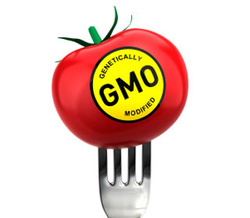Much of the World Requires Labeling & Banning of GMOs, Why Not The United States?

By Theodora Filis
Recently, a committee made up of members of the US House of Representatives passed a bill allowing genetically modified crops (GMOs) to continue to be used on American farmland. These patented seeds are owned by biotech giants like Monsanto and Dupont, who claim their seeds help provide US consumers with an “abundant and reliable food supply” while remaining competitive in the world market.
According to Bloomberg Business, the one-paragraph provision to the 90-page bill, which is headed to the full House for consideration, will "circumvent legal obstacles that have slowed commercialization of engineered crops, sometimes for years, benefiting Monsanto, the world’s largest seed company. Planting would be permitted until USDA completes any analysis required by a judge."
Most of the World Already Requires Labeling of GMOs. What Do They Know That US Consumers Don't?
Monsanto is well known for their company's heated stance against small scale farmers, threatening them with hundreds of lawsuits for using GMO seeds patented by Monsanto that have been carried onto their farms by wind and other elements of nature.
Earlier this year, Monsanto threatened to sue the entire state of Vermont because lawmakers there were considering a bill that would force manufacturers to label products that are created either partially or in full from a GMO.
Fortunately, Vermont is not alone in their fight to have GMO products labeled. Many other states, including California, are fighting to have GMOs labeled like they are in Europe and other nations.
Over 75% of Californians said they would vote for Mandatory Labeling of Genetically Engineered Foods.
The California Right to Know Genetically Engineered Food Act is simple: The initiative would simply require food sold in retail outlets to be labeled if it contains genetically engineered ingredients. Contrary to what Monsanto and the Biotech industry would like you to believe, the California Right to Know Genetically Engineered Food Act will have no cost impact on consumers or food producers.
If this initiative passes, it will be a huge step towards the transparency US consumers have been demanding for years. Once people know what is in their food, they can then make the informed choice to avoid the potential health risks of GMOs until more research on their long-term effects can be done.
50 countries with over 40% of the world’s population already label genetically engineered foods, including the entire EU. Even China labels genetically engineered foods.
Despite consumer's demands to label and halt the use of GMOs, the Seed Library of Los Angeles (SLOLA), brought news recently that Monsanto is beginning a program to start selling seeds to consumers. The first crop of seeds to be sold for home use will be corn. The problem with this, says SLOLA's chairman David King, is that corn's pollen can spread up to 20 miles, meaning that if one person plants Monsanto's modified seeds, other organic farmers' produce can and will be impacted.
Most European governments have adopted the “precautionary principle” in dealing with GMOs, arguing that GM crops should be proven safe to both human health and the environment before farmers plant their fields with them.
93% of US consumers favor labeling GMO foods. Only 35% of US Senators voted in favor of allowing States to require GMO labeling.
"If commercial interests have convinced Congress--to do business as usual--and that profits are more important than our children having improved lunches in schools, if Congress has now said that a few tablespoons of tomato sauce define Pizza as a Vegetable, then we, as Conscious Consumers will Grow a Healthier Pizza through the action of this petition. To top off this pizza, we want to know the quality of our Ingredients. If pizza is made from cans and containers that have ingredients that are made wtth GMOs--Genetically Modified Organisms--We have a Right To Know, just like people in near 50 other nations." --Leslie Goldman, Your Enchanted Gardener, Plant Your Dream Blog
http://www.change.org/petitions/the-people-of-california-who-are-registered-voters-7-5-million-2-of-us-will-vote-yes-right-to-label gmos
